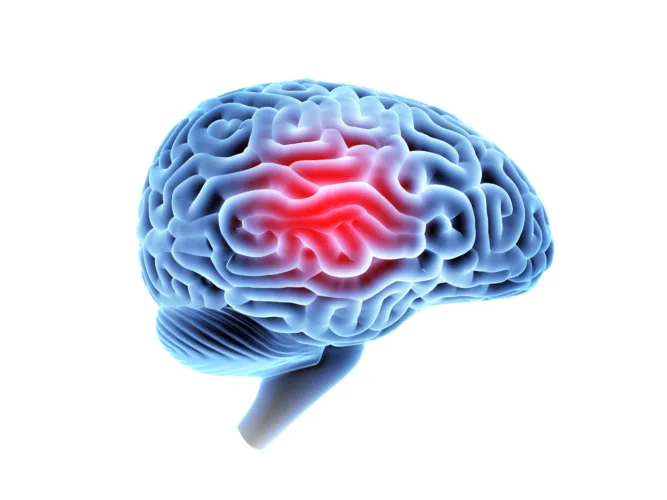
If you were asked to list all of the different factors that can influence the state of a person’s mental health, how long would it take for you to list nutrition?
Bullies, an unhealthy home environment, a high-stress career or a traumatic event are some factors that people would state impact a person’s mental health. While these are more obvious, nutrition is definitely not top of mind.
However, nutrition is one of the biggest factors that play a role in the overall state of our mental health but is not nearly as widely discussed as other more commonly addressed issues like trauma or unhealthy relationships.
In this article, we’re going to take a closer look at the relationship between nutrition and mental health and break down how what you eat is affecting you more than you know.
Why is proper nutrition important?
Our bodies absorb whatever they are exposed to, whether that be through the countless particles in the air, the products we put on our skin, or the various foods and beverages we consume.
When fueled with the right nutrients, minerals, fats, proteins and vitamins, our bodies thrive. We not only feel better, but we look better, and we receive a multitude of benefits.
The most common (but still incredible) benefits of good nutrition include:
- Strengthened immune system, organ function and hormone regulation
- Increased energy levels
- Enhanced focus, concentration and productivity
- Dramatically reduced risk of chronic disease or illness
- Easier weight management
- Healthier digestive health
- Improved physical endurance and recovery
- Strengthened brain health and mental well-being
In addition to the above benefits, proper nutrition is also important because of how significant the negative effects of poor nutrition are, on both our mental and overall physical health.
What are the effects of poor nutrition?
The human body is incredibly resilient, so it can take years or even decades before we start to internally or externally manifest obvious symptoms of a deteriorating health system.
Our immune system and other organs are designed to fight off and expel any harmful substances they encounter, but our body can only be inundated with so much toxicity for so long before it begins to fail.
The most common signs, symptoms and effects of poor nutrition are:
- Being highly susceptible to infections, viruses and diseases
- Increased risk of chronic diseases and illnesses
- Uncontrollable weight gain or excess “stubborn fat”
- Inability to digest food properly (e.g., bloating, constipation, irritable bowel syndrome)
- Constant fatigue and low energy levels
- Poor skin health (such as hyper-oily or dry skin, or acne)
- Abnormal hair growth or hair loss
Poor nutrition doesn’t just make you feel ill, it also takes a detrimental and oftentimes long-term toll on your physical and mental health. When it comes to how nutrition affects mental health though, especially in terms of the foods that are harming us, we need to learn how to recognize them.
The worst foods for your mental health
The amount of information out there about nutrition can be overwhelming. The reason the below foods and ingredients are considered to be some of the worst foods for your mental health is because of one thing they all have in common which is they cause inflammation.
Inflammation in the body has been linked to nearly every chronic disease and illness, including depression, anxiety, diabetes, autoimmune disorders, cancer, dementia, Alzheimer’s and more.
Sugar is one of the biggest contributors to a high-inflammatory diet, and it’s been placed in more foods than you might realize — plenty of which aren’t even sweet foods by nature. Look out for hidden sugars in ingredient lists such as corn syrup, fructose (or sucrose), high-fructose corn syrup and fruit juice concentrates.
Another major source of inflammation is unnatural, saturated fats like trans fats. These fats are used to create and fry fast foods, processed snacks (savory or sweet), many frozen meals and shelf pastries (such as cookies and donuts). Think of shortening, margarine and other hazardous oils like partially hydrogenated, vegetable, canola, peanut, corn and sunflower.
Highly refined (bleached) carbohydrates, like white flour products. Standard household items like white bread, pasta, crackers, cereals and desserts are not only devoid of nutrients (at least, here in the United States), but they’re considered extremely high-glycemic food, which commonly triggers inflammation.
As important as nutrition is, the education around how to properly, sustainably and enjoyably implement nutrition in our lives is lacking greatly, and many people find themselves too overwhelmed to even start.
Receive additional support today
Here at Seeds of Hope, we specialize in helping teens and adults restore their relationship with food in a way that will help them optimize their physical and mental health now and in the future.
If you think you or someone you love could benefit from learning more about proper nutrition and how to begin implementing nutritious practices into their life today, please reach out to us.
Whether you’re ready to enroll in one of our programs or not, we’re here to help. Send us a message or call us today at 610-644-6464 to get started.


